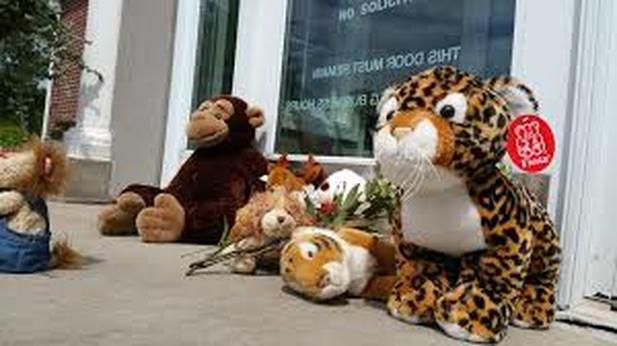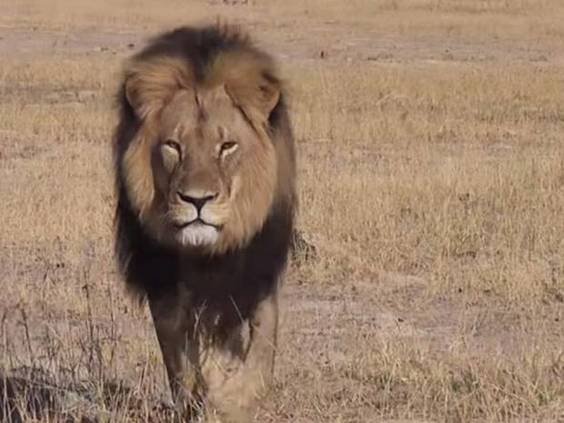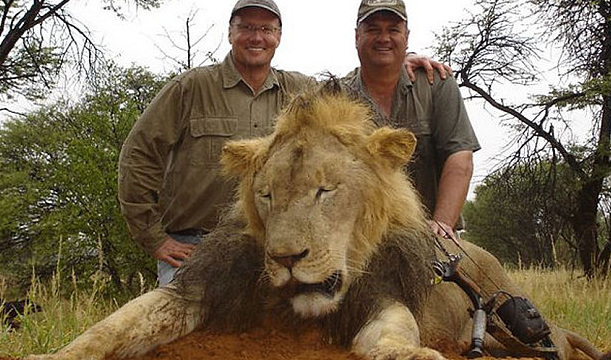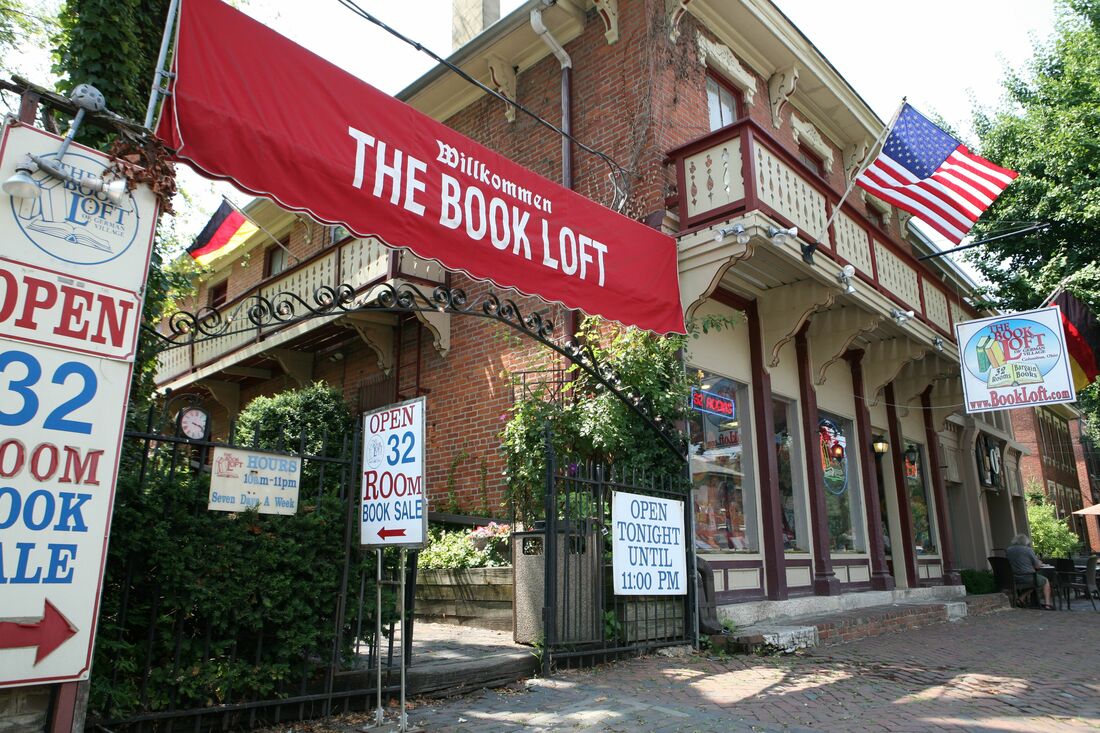|
On this day, the first day of August in the year 2105, this world continues to be a harsh place for many of its inhabitants. Not a year goes by that there's not a war or a conflict brewing somewhere on the planet and we've managed - or perhaps it's our leaders who've managed - to create more animosity among us than most of us wish there was. And yet once in a while something happens that unites us all around the globe in joy or grief, though in truth it's more often in grief. And the grief that has most recently transcended our differences and brought us together is over the cruel death of Cecil the lion. Up until last week few of us in this country had ever heard of Cecil, the beautiful,13-year-old black-maned alpha lion who was the star attraction at Hwange National Park. But the people of Zimbabwe knew and loved Cecil, whose life had been studied for years by scientists at Oxford University. Nor was big game trophy hunting much in the collective consciousness - I myself would have thought that sort of thing had gone the way of the old 1940's Tarzan movies - but it apparently still exists, though mostly as a leisure activity among a select group of super-rich Americans. But now the killing of Cecil the lion by Walter J. Palmer, Whoever you are, wherever you are, Cecil's horrible ordeal wounds your heart. You can see in your mind this beautiful lion, alpha male in his pride and sire to many cubs, safe and well his whole life, as trusting as a child as he follows that dragged animal carcass, innocent of the least suspicion that he is being lured far from safety and help by the worst of bad human strangers. You can picture the moment Cecil, contentedly eating his food, the bait he'd been lured with, is hit by the crossbow arrow; you can imagine his surprise, his pain, his confusion, his terror as he limps bleeding away from his unfinished meal, alone in a strange fearful place. We know that Walter J. Palmer and his guides tracked Cecil as he wandered for almost two days, bleeding, hungry, thirsty. But here's what's not clear: did Cecil wander for 40 hours because Palmer lost him or was the lion intentionally allowed to wander and weaken so that Palmer could enjoy the illusion of a big hunt and then more easily bring down the already dying lion at the end? We also don't know what was going on in Palmer's mind during the two days that he followed the suffering lion. Was Palmer consumed with excitement, the thrill of anticipation purposely and unnecessarily dragged out for the hunter's maximum enjoyment? Did Palmer not feel a moment's distress for the lion's suffering? Apparently he did not, judging from the photo of himself gloating triumphantly over Cecil's dead spiritless body, flattened by Palmer and his assistant into a posture of defeat and sad submission. But the rest of us do feel distress over what was done to Cecil and now many are crying out for vengeance for the crime against this lion and against his cubs, who are now likely be killed by he other male lions in Cecil's pride as they battle to seize his empty place as alpha male.
And Walter J. Palmer is finally feeling remorse. Not for the life he took, but for the unhappy fate of his own.
4 Comments
Frank H
8/1/2015 02:58:40 am
While I can't find a search function on this blog, a scan of recent posts uncovers no similar expression of outrage nor mourning over the ongoing slaughter by Planned Parenthood, especially the recent revelations of their selling body parts of aborted babies. Sure, the Cecil incident is despicable and the perpetrator should be prosecuted. But so should Cecil Richards and her accomplices.
Reply
Theresa
8/2/2015 11:45:26 am
I think you are missing the point....
Reply
Molina
8/1/2015 03:08:40 am
Down to the nuts and bolts, humans need to stop killing the weakened, the helpless, the unprotected. It is ALL so sad that we have no respect for any of God's creation, horribly, horribly sad!
Reply
Patti
8/1/2015 09:54:38 am
Gee, Molina, I was going to reply to your comment but I started writing and writing, and before I knew it I had written the length of a blog post! So anyway, I'll answer your very good comment in Monday's post. As always, thanks for your input.
Reply
Leave a Reply. |
"Tropical Depression"
by Patti Liszkay Buy it on Amazon: https://www.amazon.com/dp/B0BTPN7NYY "Equal And Opposite Reactions"
by Patti Liszkay Buy it on Amazon: http://amzn.to/2xvcgRa or from The Book Loft of German Village, Columbus, Ohio Or check it out at the Columbus Metropolitan Library
Archives
July 2024
I am a traveler just visiting this planet and reporting various and sundry observations,
hopefully of interest to my fellow travelers. Categories |










 RSS Feed
RSS Feed